Introduction
Deciding when to start daycare can be a big step for both parents and children. Knowing the right time can make the transition easier and more comfortable. Many parents wonder about the perfect age and whether their baby is ready. In this article, we will explore five positive signs that it’s the right time to start daycare. These tips will help guide your decision and ensure your little one is prepared for this important change.
#1 Your Child’s Developmental Stage
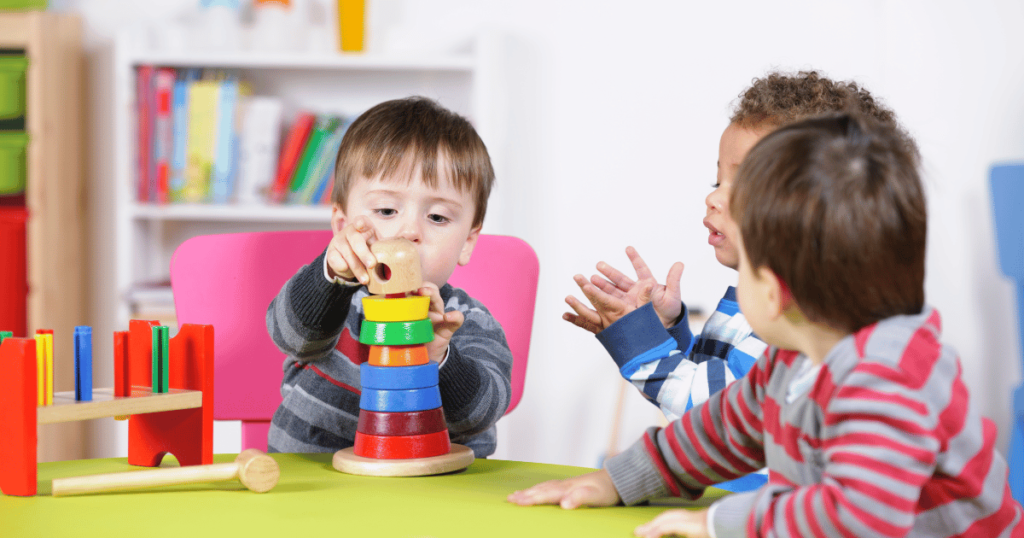
The ideal time to start daycare largely depends on your child’s developmental stage. Infants as young as 6 weeks can begin daycare, but it’s important to consider their individual readiness. Some signs that your child is ready include the ability to adapt to new environments and interactions with other children.
If your baby is starting to show signs of independence—like being able to stay with someone other than a parent without distress—this can be a positive sign that they’re ready for daycare.
What age is ideal for daycare?
Most experts recommend starting daycare between 6 months and 1 year. At this stage, babies are beginning to form attachments with caregivers other than their parents.
#2 You’re Returning to Work

One of the most common reasons parents look into daycare is returning to work. If you’re planning to go back to work, this might be the perfect time to consider starting daycare. Many daycares are designed to provide a safe and engaging environment for your child while you focus on your job.
Before you make the decision, it’s important to research local daycare options and visit a few centers to ensure the best fit for your family’s needs.
How do I know my baby is ready for daycare?
Signs your baby might be ready include adjusting well to others, showing curiosity, and being able to follow simple routines.
#3 Your Baby Needs Social Interaction
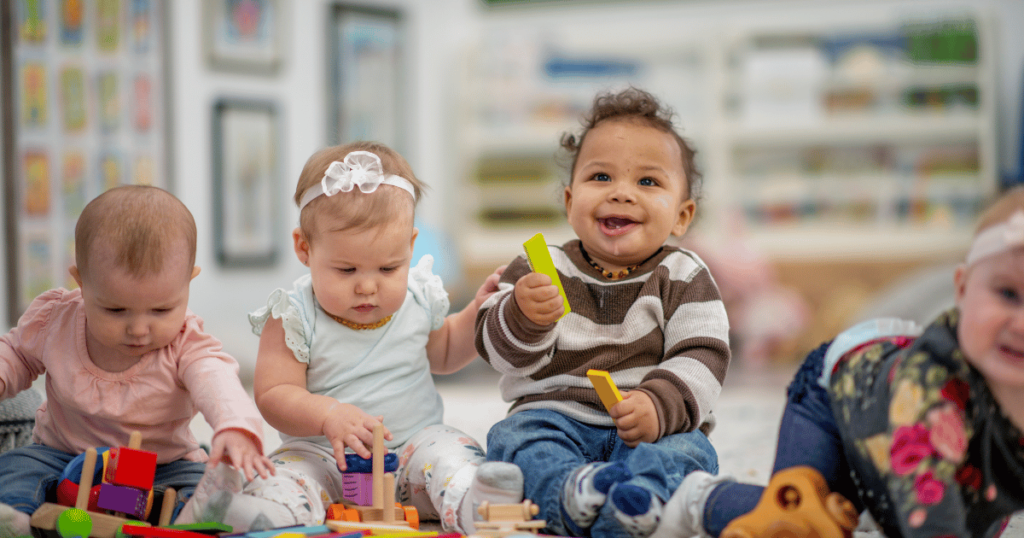
Social interaction is essential for a child’s development, and daycare offers a wonderful opportunity for your baby to engage with other children. Around 1 to 2 years old, many toddlers become interested in playing and interacting with their peers. Daycare can help them learn important social skills like sharing, cooperation, and communication.
This can be especially helpful if your baby doesn’t have regular opportunities to socialize with other children at home.
Is daycare good for toddlers’ social development?
Yes, daycare encourages social development, allowing toddlers to build friendships, learn empathy, and develop communication skills.
#4 Routine and Structure Are Beneficial
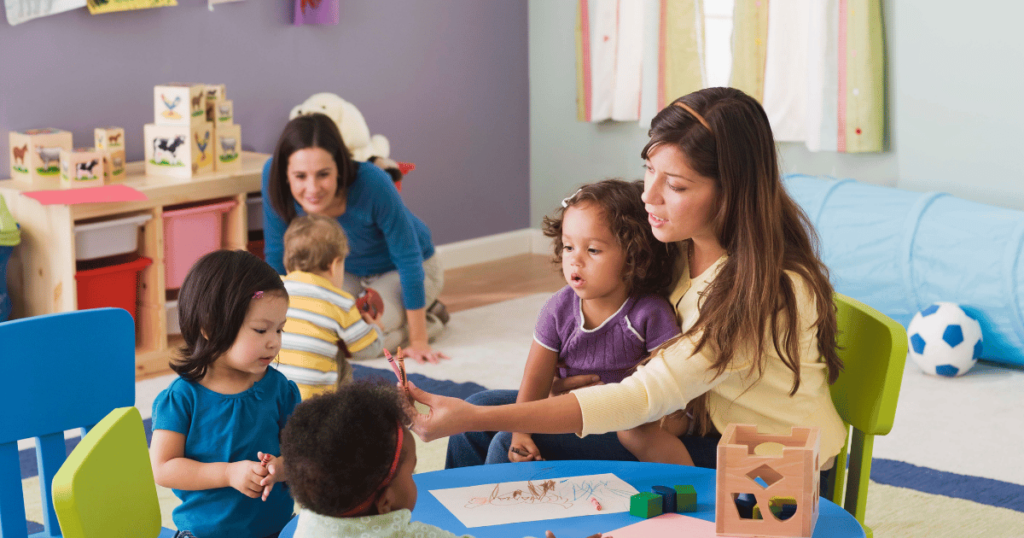
Daycare provides a structured environment where children can thrive. If you’re finding it challenging to establish routines at home, daycare can help. Many daycare centers follow a schedule that includes nap times, meals, and activities. This routine can help your baby feel secure and make the transition to school easier in the future.
Children as young as a few months old benefit from having consistent routines in place. If your baby enjoys predictability, daycare might be the right fit.
What routine does daycare offer for babies?
Daycares typically follow a daily schedule, which includes time for play, naps, meals, and learning activities. This structure helps children feel secure and comfortable.
#5 Your Family is Ready

Starting daycare is a big step not just for your baby, but for the entire family. It’s important that both you and your child feel emotionally prepared for this change. If you’re feeling confident that your baby will thrive in a daycare setting, that’s a great sign you’re ready.
Some parents worry about the separation, which is completely normal. Gradually transitioning your child into daycare, starting with shorter hours, can help both you and your baby adjust.
How can I help my baby adjust to daycare?
Start with shorter daycare days and increase the hours as your baby gets comfortable. A gradual introduction can help ease the transition.
Other Important Considerations
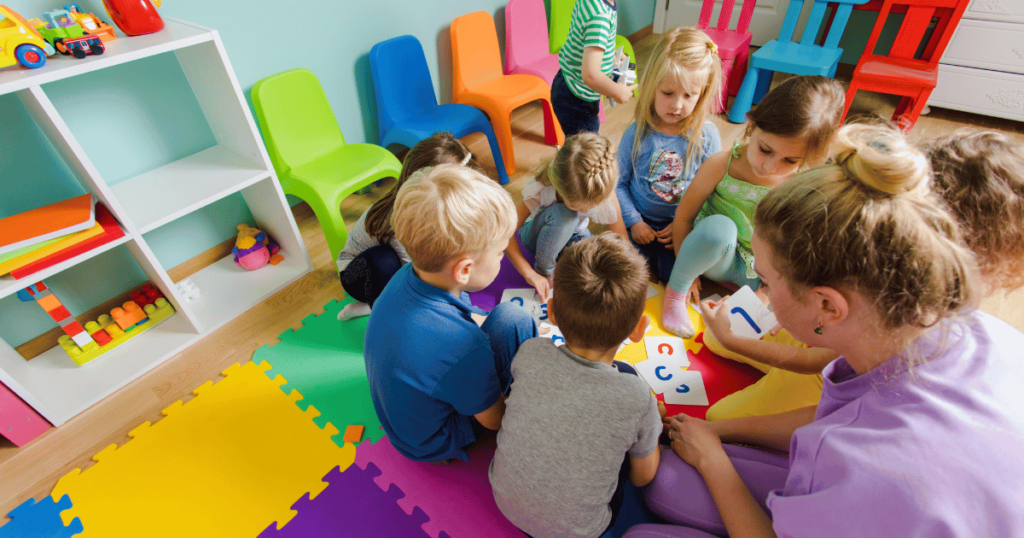
Before making the final decision, there are some additional factors to keep in mind when starting daycare:
- Cost: Daycare can be expensive, so it’s essential to budget for this new expense. Many centers offer different pricing tiers based on the hours or days your child attends.
- Health and Safety: Ensure the daycare follows proper hygiene and safety measures, especially when it comes to food, sanitation, and sleep arrangements.
- Location: The convenience of the daycare’s location matters, particularly for working parents. Look for a center that’s close to home or work to make drop-offs and pick-ups easier.
How to choose the right daycare?

Finding the right daycare for your child can take some time. Begin by exploring local options and checking reviews from other parents. Don’t hesitate to visit several daycares to get a feel for the environment. During your visit, ask about the caregiver-to-child ratio, the curriculum they follow, and the safety measures they have in place.
Questions to Ask During a Daycare Tour
What is the caregiver-to-child ratio?
The caregiver-to-child ratio varies by age and location, but generally, it’s around 1 caregiver for every 3-4 infants and 1 caregiver for every 6-10 toddlers. This ensures proper attention and safety for each child.
What kind of activities do you offer for babies and toddlers?
Daycares offer age-appropriate activities such as sensory play, storytelling, music, and movement. For toddlers, activities may include outdoor play, arts and crafts, and early learning exercises like shape and color recognition.
What are your safety and health policies?
Daycares follow strict safety guidelines, including secure entrances, constant supervision, and regular sanitation. Health policies typically include vaccination requirements, daily health checks, and immediate isolation if a child shows symptoms of illness.
How do you handle discipline and conflict resolution?
Most daycares use positive reinforcement and gentle guidance to handle discipline. They promote communication, teach problem-solving skills, and redirect children to more appropriate behaviors.
How do you start your own daycare business?
To start a daycare, you need to secure a license, create a business plan, find a suitable location, and hire qualified staff. You also need to meet safety standards and create a curriculum that fits the children’s age groups.
What does a child usually do in daycare?
Children in daycare follow a structured routine that includes meals, naps, playtime, and learning activities. They engage in social interactions, physical play, and early education programs.
Should an infant (3 months) be placed in daycare?
While some parents place their 3-month-old in daycare, it’s a personal decision. Many daycares offer care for infants, ensuring proper attention, but it’s important to choose a center with a low caregiver-to-child ratio.
How do I start a daycare and preschool?
Starting a daycare and preschool involves obtaining proper licenses, developing a curriculum, hiring staff, and ensuring the facility meets safety standards. Marketing and maintaining high-quality care are also essential.
How do I run a successful daycare business?
To run a successful daycare, focus on safety, quality care, and a nurturing environment. Build strong relationships with parents, follow local regulations, and hire dedicated staff. Consistent communication and providing engaging activities for children are key.
What steps are involved in starting a daycare in Chennai?
In Chennai, you need to apply for a daycare license, meet government regulations on safety and space, and have trained caregivers. You should also secure a child-friendly facility and follow health and safety guidelines.
When did your child begin attending daycare, and what was your experience like?
Children typically start daycare around 3-12 months old. Parents’ experiences vary, but many appreciate the socialization, learning opportunities, and reliable care daycares provide.
Why should I start a daycare?
Starting a daycare can be rewarding. It offers the chance to shape young lives while meeting a growing demand for quality childcare. It’s also a profitable business if managed well.
Where did childcare start?
Childcare services started in the 19th century as part of industrialization. Daycare centers were created to support working mothers, offering a safe space for children while their parents worked.
How many children are in a daycare?
The number of children in daycare depends on the size and location of the center. Small home-based daycares may care for 5-10 children, while larger centers might have 50 or more, divided into age groups.
When does daycare sickness stop?
Daycare sickness often decreases after the first 6-12 months as a child builds immunity. Frequent exposure to germs can lead to colds, but children eventually develop stronger immune systems.
Conclusion
Deciding when to start daycare is a personal decision that depends on your family’s needs, your child’s development, and your emotional readiness. Watching for positive signs—like your baby’s social development and curiosity—can help you determine the best time. Remember, both you and your child will adjust to this new chapter, and with the right daycare, it can be a happy and enriching experience for your little one.
Other References
- American Academy of Pediatrics (AAP)
- What to Expect – March of Dimes
- KidsHealth from Nemours
- American Dental Association (ADA)
- WebMD
- What to Expect
- BabyCenter
- Verywell Family
- The Spruce
- Healthy Children
More to Read
- How to bathe a newborn baby in 13 steps: The comprehensive guide
- Getting the temperature just Right: A guide to baby bath water
- Bath Time: How often should you wash your little one
- Baby Bathtubs: The Best 5 Ways to Store Baby Bathtubs in 2024
- 4 Steps to Choose a Collapsible Baby Bathtub in 2024
- The Best 5 Baby Bathtubs for Small Space in 2024
- The Best 5 Inflatable Baby Bathtubs In 2024


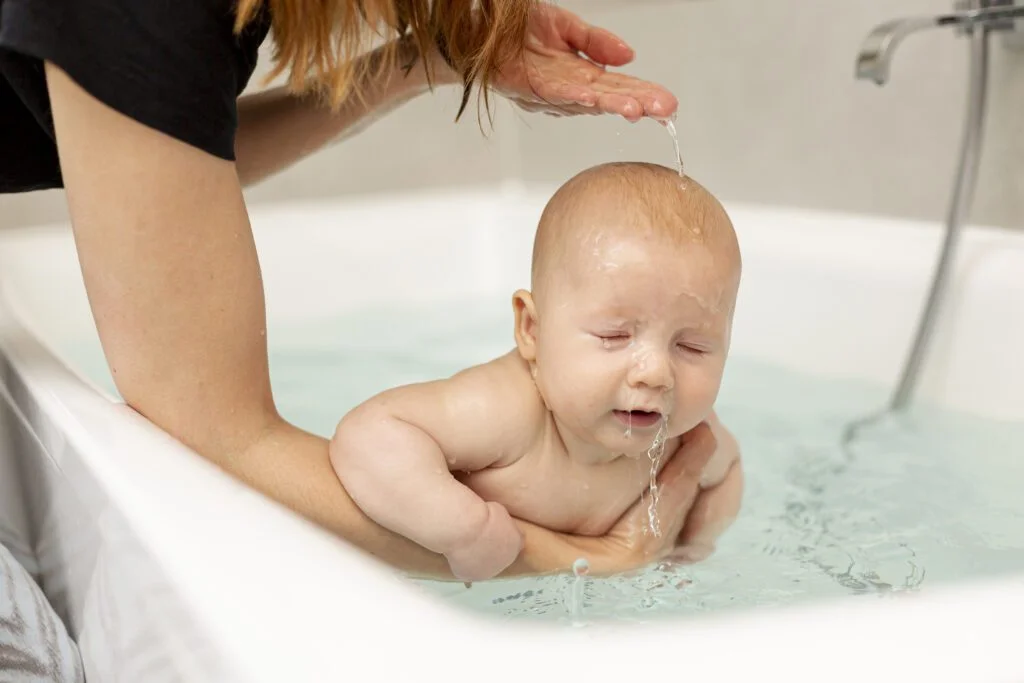

Howdy! I know this is somewhat off topic but I
was wondering if you knew where I could find a captcha plugin for
my comment form? I’m using the same blog platform as yours and I’m having
trouble finding one? Thanks a lot!!